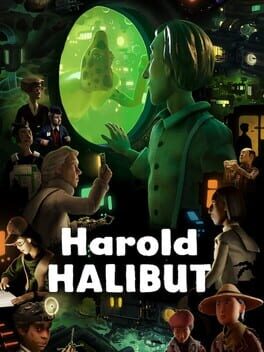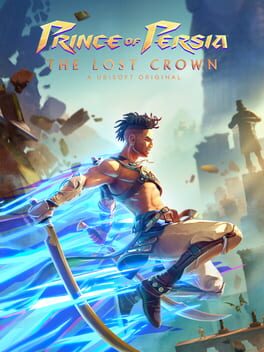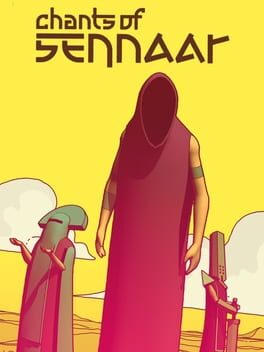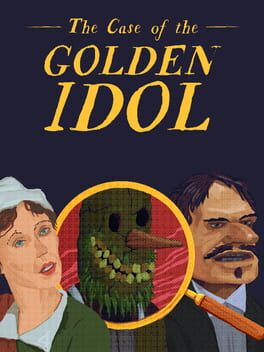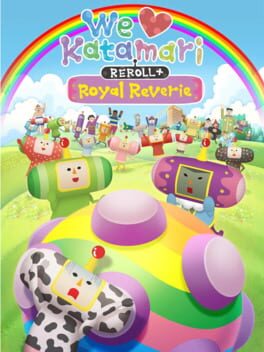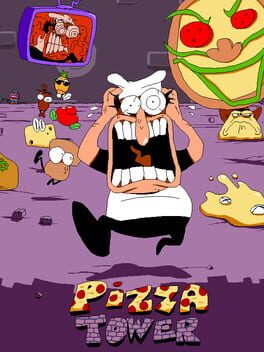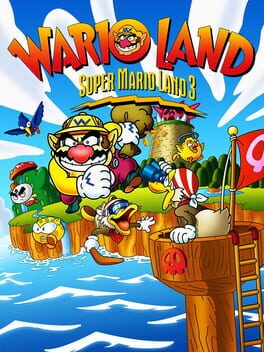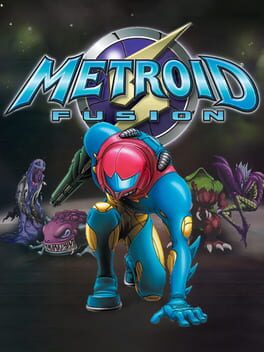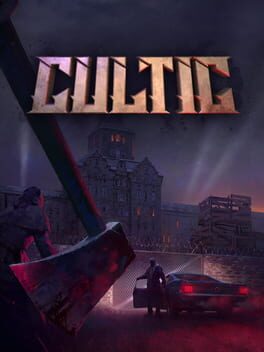CMongler
2024
Harold Halibut is a strange, unique, and also heart-warming experience that unfortunately isn't going to be everyone's flavor. "Game" might even be a strong word for Harold Halibut -- there's very little in the way of mechanical friction for the player; no real puzzles, challenges, or other elements you might expect from an "adventure game". Instead, Harold Halibut presents a quirky cast of characters living aboard a crashed, underwater spaceship-city and invites you to intimately get to know their lives, their routines, their thoughts, fears, and everything in between. If you give this one a shot and aren't intrigued by the world within the first hour, I'll be honest: bounce off it. You're not likely to find much to love here.
That IS Harold Halibut, though. The game revolves entirely around running here and there, helping neighbors and friends by doing odd-jobs or delivering messages, and getting to build up relationships with the cast. Sometimes, that's enjoyable enough. The art direction of the game frankly incredible, the soundtrack is great, the animations and acting are solid and feels like you're watching a real claymation film -- most of the time I was fully engaged. Sometimes it drags, though. The titular Harold, being a quite plain guy, often does plain, boring things; understandable that the player will too, to better understand him and the grievances he comes to express in the story. However, when you're nearing double-digits in play time and still running back-and-forth, back-and-forth to initiate a chat with a character 3 loading screens away, it starts getting old. Not to mention there are multiple instances where the game forcibly takes away your ability to run, or even in one scene towards the end, makes you move in slow motion, which only compounds how slow things feel sometimes.
All-in-all I liked Harold Halibut quite a bit, and even had a melancholy feeling when it ended, having to say goodbye to a cast of characters I felt like I had grown to know personally. It's hard to shake the feeling, however, that there could have been more use of the video game medium here, and a bit less of the running around the game has you do most of the time.
That IS Harold Halibut, though. The game revolves entirely around running here and there, helping neighbors and friends by doing odd-jobs or delivering messages, and getting to build up relationships with the cast. Sometimes, that's enjoyable enough. The art direction of the game frankly incredible, the soundtrack is great, the animations and acting are solid and feels like you're watching a real claymation film -- most of the time I was fully engaged. Sometimes it drags, though. The titular Harold, being a quite plain guy, often does plain, boring things; understandable that the player will too, to better understand him and the grievances he comes to express in the story. However, when you're nearing double-digits in play time and still running back-and-forth, back-and-forth to initiate a chat with a character 3 loading screens away, it starts getting old. Not to mention there are multiple instances where the game forcibly takes away your ability to run, or even in one scene towards the end, makes you move in slow motion, which only compounds how slow things feel sometimes.
All-in-all I liked Harold Halibut quite a bit, and even had a melancholy feeling when it ended, having to say goodbye to a cast of characters I felt like I had grown to know personally. It's hard to shake the feeling, however, that there could have been more use of the video game medium here, and a bit less of the running around the game has you do most of the time.
2023
I’m conflicted about this one. There are moments of Final Fantasy XVI that are my favorites of the entire franchise. The sheer scale and spectacle of some of the battles and cinematics in this game are phenomenal and awe-inspiring. The more-mature, higher fantasy plot is pretty good. The combat is also pretty fun and offers enough variation in play to stay fresh more-or-less throughout the game. The soundtrack hits in all the ways it needs to, too.
But man, there are moments in this game where it is an absolute slog. Multiple points you’ll go from a high-octane fight with a massive, deity-like Eikon, to immediately doing simple fetch quests for your sleepy home base. The game’s narrative at one point even goes as far as acknowledging the main character is just running around doing boring chores; like was that not a clue that maybe some of this stuff should have been reconsidered?
The pacing whiplash this creates unfortunately detracted from the overall experience quite a bit, and was by far my biggest gripe with the whole thing. On top of that, I was disappointed by the kind of complete lack of a true party in this game — I honestly can forgive the lack of “RPG elements” (something this game, in fairness, does lack) in a Final Fantasy game, but to me these games have always been about a party of heroes going in an epic quest. This game is first and foremost the Clive show, with a couple key secondary characters who play their parts at certain points.
Ultimately it’s just kind of a bummer. I wanted to love this game, and there are moments where I did, but the moments where I didn’t almost made me drop the game entirely. But hey, I think I liked it more than XV, so it’s the little wins, right?
But man, there are moments in this game where it is an absolute slog. Multiple points you’ll go from a high-octane fight with a massive, deity-like Eikon, to immediately doing simple fetch quests for your sleepy home base. The game’s narrative at one point even goes as far as acknowledging the main character is just running around doing boring chores; like was that not a clue that maybe some of this stuff should have been reconsidered?
The pacing whiplash this creates unfortunately detracted from the overall experience quite a bit, and was by far my biggest gripe with the whole thing. On top of that, I was disappointed by the kind of complete lack of a true party in this game — I honestly can forgive the lack of “RPG elements” (something this game, in fairness, does lack) in a Final Fantasy game, but to me these games have always been about a party of heroes going in an epic quest. This game is first and foremost the Clive show, with a couple key secondary characters who play their parts at certain points.
Ultimately it’s just kind of a bummer. I wanted to love this game, and there are moments where I did, but the moments where I didn’t almost made me drop the game entirely. But hey, I think I liked it more than XV, so it’s the little wins, right?
2015
A fascinating, short, narrative-game that deals with the topic of creative expression and a creator and their audience (or in the case of video games, the player). I feel like I’m still chewing on “the message”, having just completed this one a few moments ago, but the closing question of “what does it mean to create not for external validation” really resonated with me currently as I feel similarly stuck in a place where my own work doesn’t feel like it is for me a lot of the times. Highly recommended for anyone involved in any sort of creative endeavor, especially video game development.
A great metroidvania that absolutely excels at engaging combat and stylish boss fights. Definitely one of the best of them. I do have to knock though, the game in the latter stages gets notably buggy; scenes often hitch, and once I even had the entire area's geometry unload at the start of a dramatic cut scene that then took place in a gray void.
2023
I love these sorts of slow-burning, player-paced, who-done-it-or-what mystery games, and this one was no exception. The Case of the Golden Idol progresses players through a series of scenes depicting a series of events in its game-world and asks the player "what happened here?". Then you collect clues in the form of fill-in-the-blank words and names, and lay it all out. Fairly simple in gameplay, but very satisfying in narrative presentation.
2023
2017
Certainly a genre-defining Metroidvania. This game does effectively everything to perfection: satisfying platforming, fluid combat, challenging boss encounters, interesting and diverse environments, and worth-while secrets, shortcuts, and upgrades. It took me a few tries and restarts to get hooked into this game admittedly, but once you start to get immersed into the world of Hollownest, it's hard to want to leave.
I've truthfully only played through a handful of GB platformers to completion, but this is one of the more solid ones I've gotten through. As the last Super Mario Land game and also the first Wario Land game, this one has a little bit of an identity crisis in that it still plays quite a bit like Mario, but has some sprinklings of the elements Wario Land games would really become starting with the second entry. Levels are somewhat more open than the were in other Mario Land games, and Wario's controls and powerups have a bit more gusto to them. While the game has some decent length with 40 levels, a lot of them are pretty simple, and if you can manage to hang on to the Jet Wario power-up when you get one, I found it kind of trivial to just literally fly over a lot of the parts of the game.
2023
2002
I like Metroid Fusion for the most part. Something about this game feels really charming and straightforward and agreeable to me. I don't think it does anything crazy exciting compared to Super or Zero Mission, and I do think it does, quite literally, tell you where to go a little too much, but I find it to be a pretty satisfying Metroid experience, sans sections where they gate you with find-the-hidden-block section that you just kind of have to guess where they are.
2022
A spooky, satisfying boomer shooter that gives you a little slow-mo as a treat for popping a cultist's head like a balloon. Every level in this game feels big and meaty with plenty of secrets to explore and each has their own unique spin or addition to the game's formula. The only real complaint I had was the first level was the least gripping of the bunch by far and it took forcing myself through it to understand what this game was about and find its charm.
